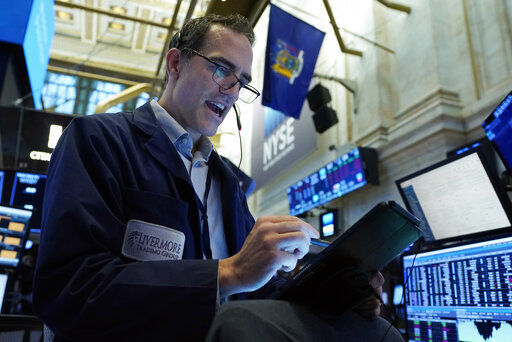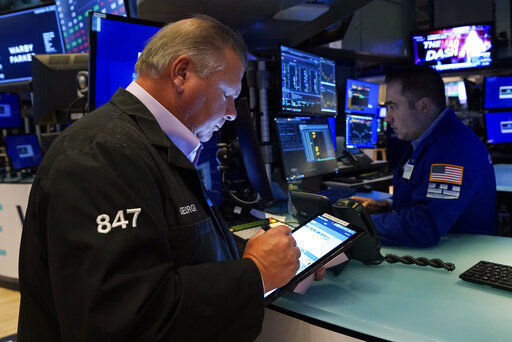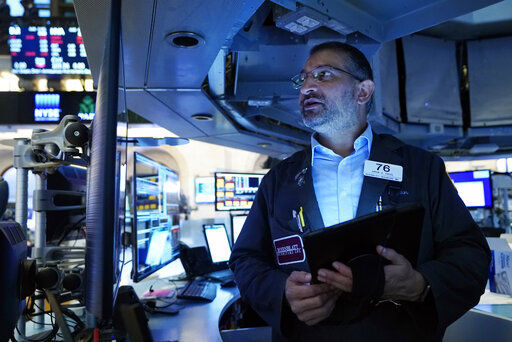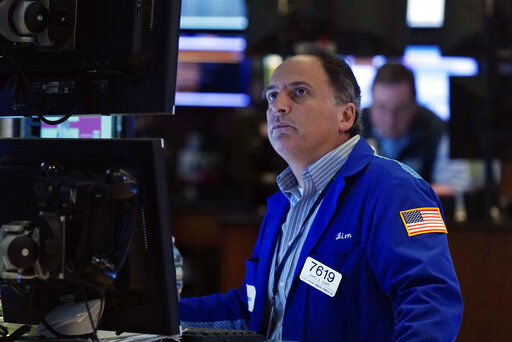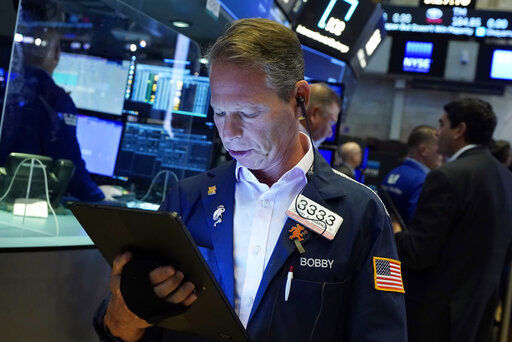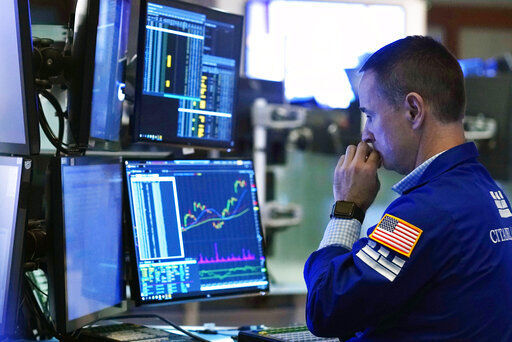Stocks ended a wobbly day with mixed results on Wall Street Wednesday as the market regrouped following a sharp drop a day earlier. The S&P 500 held on to a gain of just 0.2% after trading higher for much of the day. The Dow Jones Industrial Average added 0.3% but the Nasdaq gave back 0.2%. Treasury yields stabilized, a welcome sign for investors who had been spooked by a sharp increase in yields over the previous week. The yield on the benchmark 10-year Treasury note, which is used to set interest rates on many kinds of loans, held at 1.53%.
THIS IS A BREAKING NEWS UPDATE. AP’s earlier story follows below.
Stocks on Wall Street moved broadly higher Wednesday, recouping some of their losses a day after the benchmark S&P 500 had its worst drop since May.
The S&P 500 rose 0.5% as of 3:40 p.m. Eastern. The Dow Jones Industrial Average rose 192 points, or 0.6%, to 34,487, and the Nasdaq was up 0.1%.
Health care companies and a mix of companies that focus on consumer products accounted for a big share of the gains in the S&P 500. Eli Lilly rose 3.7% and Procter & Gamble added 1.4%.
Technology stocks also helped lift the market, a day after leading the pullback. Apple rose 0.9% and and IBM rose 1.3%.
Bond yields stabilized after surging over the past week and weighing on the market, especially technology stocks. The higher yields have forced investors to reassess whether prices have run too high for stocks, because it makes them look expensive by comparison.
The yield on the 10-year Treasury, which is used to set interest rates on many kinds of loans, inched up to 1.54% from 1.53% late Tuesday.
Markets in Asia mostly fell while markets in Europe made gains.
The broader market is still on track for a disappointing September. The benchmark S&P 500 is headed for a 3.4% loss and its first losing month since January. Investors have spent much of the month reviewing a mixed batch of economic data that showed COVID-19 and the highly contagious delta variant’s impact on consumer spending and the employment market recovery.
Investors are still closely watching the Federal Reserve to gauge how the slowdown in economic growth will impact the speed of its plan to eventually ease its exceptional support for the economy. The central bank has said that it plans to eventually trim bond purchases that have helped maintain low interest rates.
Wall Street is also preparing for the next round of corporate earnings in the next few weeks. Investors will get a more detailed look at how supply chain problems and higher costs are impacting corporate finances.
A wide range of companies have been warning investors about the impact of inflation on costs and profits. Nike, Costco and FedEx are among those that have cited materials costs, shipping delays and labor problems as concerns.
Sherwin-Williams became the latest company to warn that higher raw materials costs will hurt profits. The stock gained 1.5% as investors took the announcement in stride, but it is still down roughly 8% from its all-time high of $308.70 on Sept. 2.
Investors are still trying to gauge just how persistent rising inflation will be as the economy works through, and eventually recovers from, the pandemic. The Fed has said that higher inflation will likely be temporary and tied to the economic recovery, but more companies have signaled that they expect higher costs to linger.


